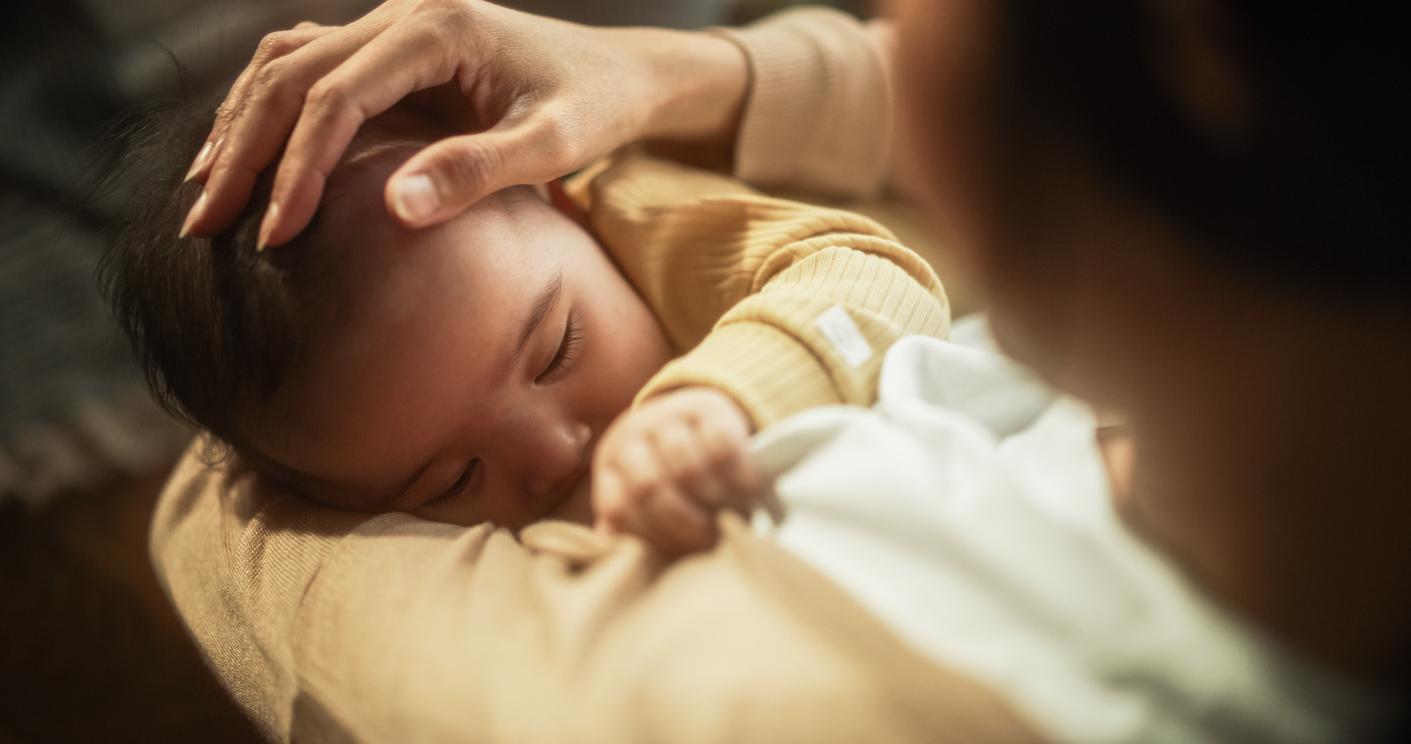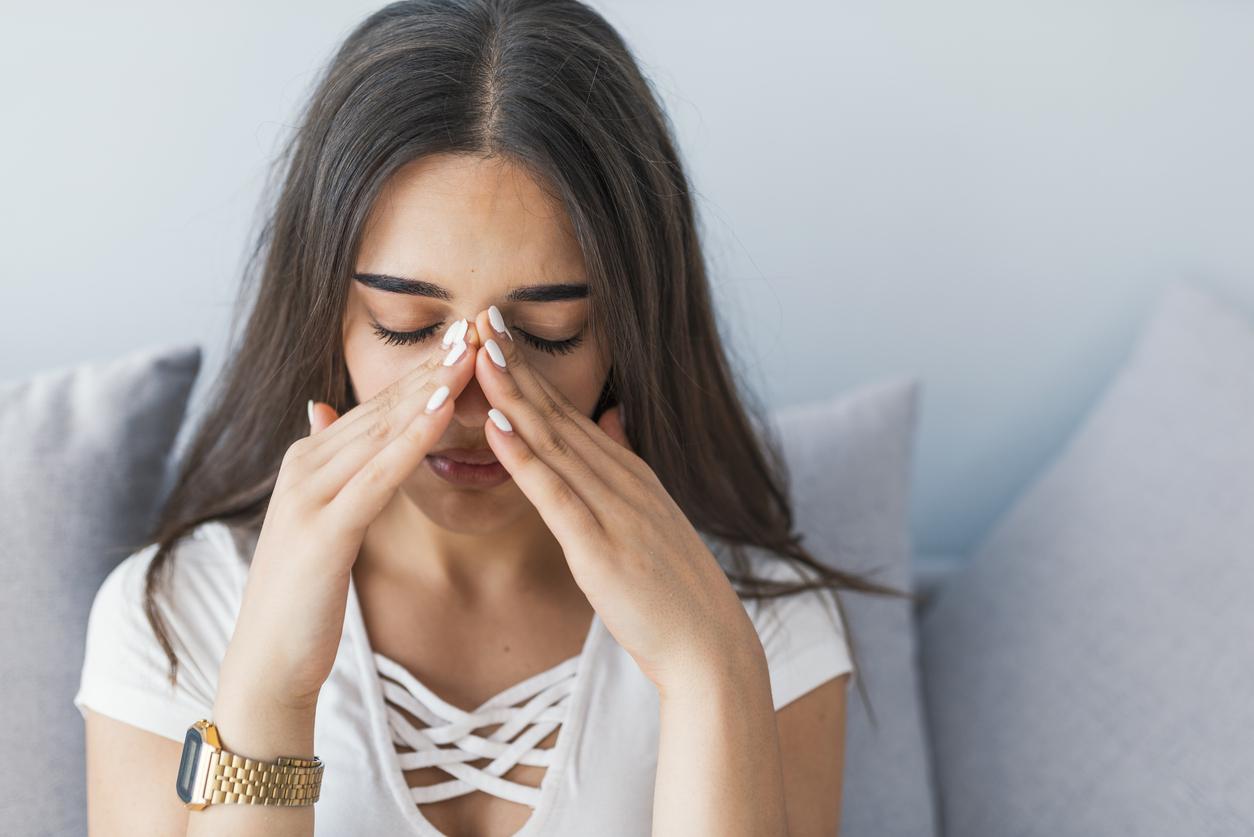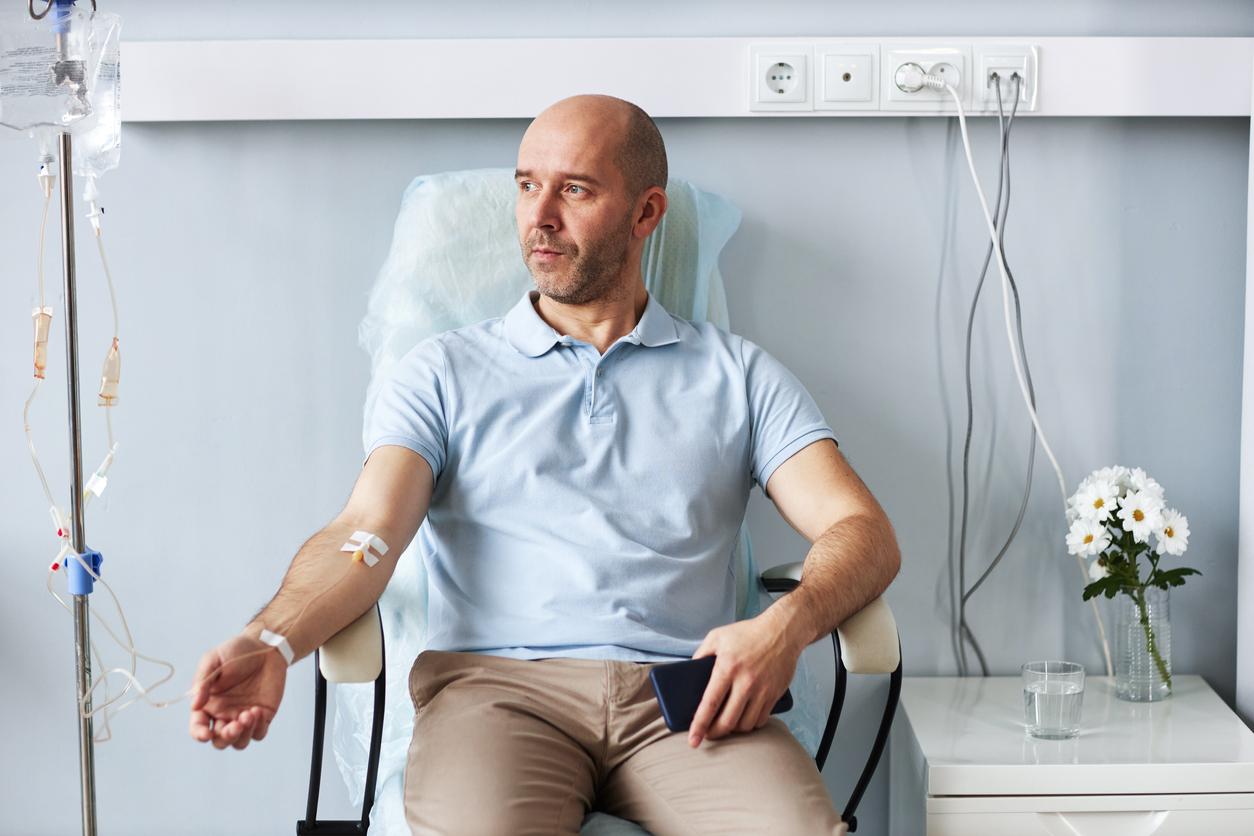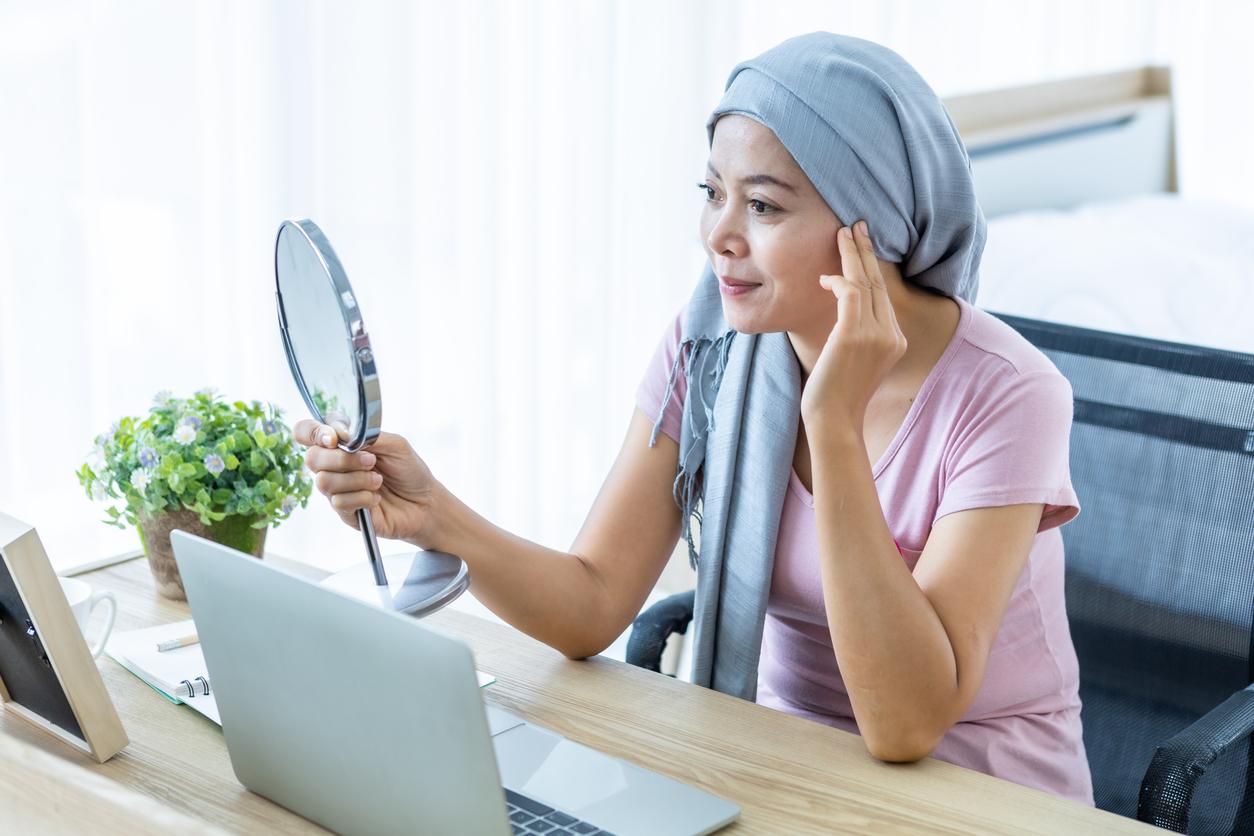Worried for nothing?
Your little one is going to summer camp? Immediately your brain gives, in spite of you, the “trigger start” to worry. Result: you knit and unravel all the possible and imaginable scenarios: “What if the bus had an accident? If the instructors did not have the appropriate training for the kayak descent?” It’s all about worrying you.
It must be said that the general context helps: terrorism, unemployment, illnesses, divorce on the rise… Enough to bring up our most intimate discomforts for nothing. Because in every anxious, there is a little girl in perpetual search of affection. “Of this love that secures. The anxious remains the child who wishes to be reassured and protected from the dangers of life, and who seeks in others, as in herself, the signs of this security”, explains Dr Alain Braconnier, psychiatrist.
We anticipate and we worry
Also, that a lover does not call at the appointed time, or that your boss speaks without his usual smile and illico, the knotted throat, one translates as: “Perhaps he does not love me anymore” and “if he thought of dismissing me?”. Welcome to the realm of anticipation! This is the principle of anxiety. We are so afraid of not mastering the unknown and the events to come, that we constantly anticipate them, rehashing them over and over again. But do not panic ! This is nothing out of the ordinary, because anxiety is a natural emotion that we all experience. It’s our survival instinct. “It serves to draw our attention to a possible problem. Thus, thanks to it, our species has escaped primitive predators”, specifies Dr. Chistophe André, psychiatrist.
You have to learn to jump into the water
“It is a signal of internal distress, felt by our conscience, in the face of an inner malaise that we are still unaware of (related to illness, sexuality, abandonment, death…), unlike fear where the danger is external and well identified”, adds Dr Alain Braconnier. So, excuse yourself. Especially since the problem is not so much anxiety as how to manage it. Because knowing how to domesticate it allows you to make it an asset, and above all to reassure yourself.
To learn more about anxiety.
Portraits of anxious women: Christine and Sylvie
Our character largely depends on our anxiety. Identify the portrait that most resembles you, in order to adopt the best strategy to overcome it.
Christine the creative, 51 years old
With her nimble fingers and her overflowing imagination, she decorated her house with a talent that leaves her nothing to envy to interior designers. However, dissatisfied, she constantly retouches what she has done: “To do better”. Its goal ? Perfection. Shy, she needs to be admired. “Alas, that doesn’t reassure me when it does,” she says. She dreams of a life made of love and absolutes.
How to react
If you’re like her, cultivate your pleasure in creating. You will positively exploit your anxiety, but also face your fears head on. You have the chance to be sensitive and intuitive, find a way so that it connects you to others and does not lock you into your torments. Your imagination should not only be a refuge. Christine has, for example, created a decorating workshop for women in her neighborhood, which she runs.
Sylvie the devoted, 23 years old
“We’re moving, could you help us?”. Sylvie’s friends are no longer even waiting for her answer. They know that she is always available and that she does everything to fix everyone’s worries, even if it means taking on unpleasant chores. Because what makes her anxious is precisely the lack of harmony and the controversies. On the other hand, serenity reassures her, like hearing her loved ones say that she is conciliatory and pleasant to live with. Before acting, Sylvie takes advice from others and regularly follows opinions that diverge from her own, so much does she fear displeasing and being neglected. She deplores her addiction, but needs the esteem of others to reassure herself.
How to react
Take good care of yourself, you will only better support others. Assert yourself, dare to express your ideas and emotions, even if they contradict those of others. They won’t take their feelings back from you.
Help from the shrink
When small and big hassles set in, don’t hesitate to seek help before they poison your life. We don’t treat anxiety like we heal a fracture, but we learn to live well with it.
– Psychotherapy
Very effective, it teaches you to gradually and concretely face what worries you, as well as the ideas that obsess you (to find out more: www.aftcc.org).
– Psychoanalysis
Thanks to her, we go back to the roots of anxiety and we find the reasons by retracing its history. “Better understanding each other makes it possible to better manage who we are. And it is not reserved for those who are the worst or who have the biggest worries”, specifies Dr. Braconnier. We sit facing the doctor, rather than lying on the couch, because “the anxious need an accompanying gaze, benchmarks, security”, he adds.
To help you gain serenity, read “Anxiety: strategies to reassure yourself”.
To learn more about anxiety.
Healing with plants
To calm anxiety gently, certain plants and homeopathy are also indicated:
– Phytotherapy
Hop flowers contain active ingredients with relaxing properties and its essential oil has sedative properties (Arkocaps® hops, Arkopharma, sold in pharmacies and parapharmacies). Hawthorn reduces emotions, feelings of oppression and nervousness (Elusanes® hawthorn capsules, in pharmacies).
– homeopathy
Five components are generally recommended: Valeriana officinalis 5CH, Ignatia amara 5CH, Hyoscyamus niger 4CH, Crocus sativus 4CH and Silicea 5CH. They are synthesized in a single tablet, to be taken two to four times a day depending on the symptoms experienced. For occasional support and to calm an anxious state the day before an important event, then an hour before, consider a relaxing treatment such as Dolirelax, Dolisos, in pharmacies.
And the drugs?
When talking is not enough, medication really helps. It is therefore very important to know how to accept taking it. The new generation of antidepressants (Deroxat®, Effexor®, Prozac®) – which, despite their name, do not only treat depression – are particularly effective, especially since they do not cause dependence or memory lapses, unlike anxiolytics. Nevertheless, over a short period (three to eight days), these are quite appropriate to alleviate the occasional anxiety of the driver’s license, a speech, etc.
To read
“Little or big anxious”, Dr A. Braconnier. ed. Odile Jacob, 23.50 euros.
“A golden mind”, Marielle Jimenez Destefanis, ed. Jean-Claude Lattes, 15 euros.
“Small anxieties and big phobias”, Dr Christophe André, ed. from the Threshold, 19.50 euros.
“Anxiety, Phobias and Panics”, Elaine Sheehan, ed. I read, 4.75 euros.
Discover in the following chapters which anxiety profile you correspond to.
Portraits of anxious women: Laure and Valérie
Laure the thoughtful, 33 years old
Laure is a librarian in a college. Although she is very reserved and rather stern, the students appreciate her because her files are a gold mine for their presentations. Her work is as polished and perfect as it can be, as it quells her doubts – which she has about everything, including herself and her feelings for others. Consequences: Laure is perpetually indecisive and often lost in thought. “Did I say the right thing? Am I right to cook a fish for the family lunch?”.
How to react
“His anxiety evokes that of the child in search of his identity and autonomy, when he acquires potty and learns to walk, asking the other for support and at the same time not wanting to expect anything more from them”, explains Dr. Braconnier. If you are in this case, your reflections must absolutely lead to action and concrete projects. Force yourself to make decisions. Your choice made, don’t come back. It was the best. Let yourself go to more lightness and be attentive to your desires, it will take nothing away from your integrity. Paradoxically, thinking and doubting are your strength, because by questioning yourself, you know yourself better.
Valérie the hyperactive, 40 years old
Contrary to popular belief, some extroverts are anxious. Busy and impatient in the morning, Valérie sets off at three hundred miles an hour. Spruce up in no time, she also gets her children ready, drops them off at school – often early – then runs off to work. Press attaché, she follows files and meetings with exaltation, and seeks to surpass herself professionally. She is rather self-confident, but still needs to be recognized and to feel loved by others. Doing nothing annoys him.
How to react
Of all the anxious, she is the best equipped to fight, because “action is both the reflection of her anxiety and the remedy to calm her. She wants to feel alive because she is afraid of not existing. Unconsciously, buried deep within herself, lurks an anguish of death,” explains Dr. Braconnier. If, like her, dynamism is your strength, do not try to slow down your pace, provided that it remains stable. If you go from two to five coffees a day, if fatigue or insomnia appear, you will have exceeded the threshold of the life-saving remedy. To dominate your anxiety, focus on discovering what concrete fear is behind it and what is its origin.
Take our test: How anxious are you?















